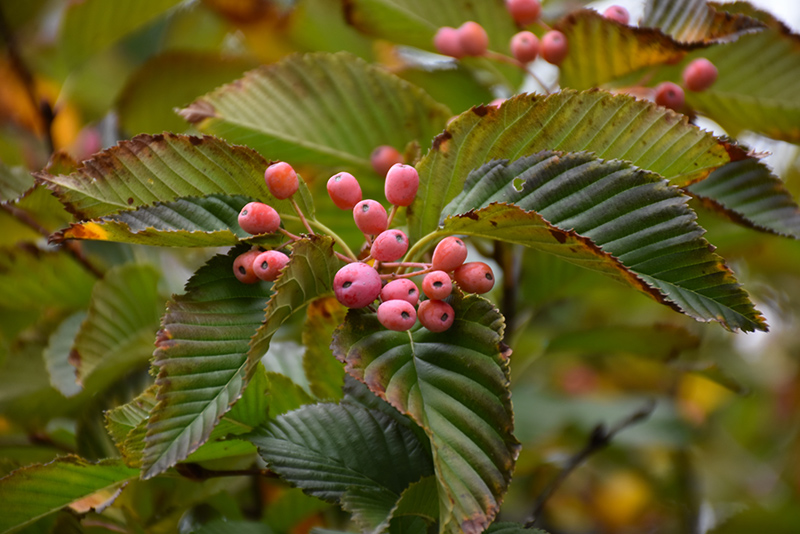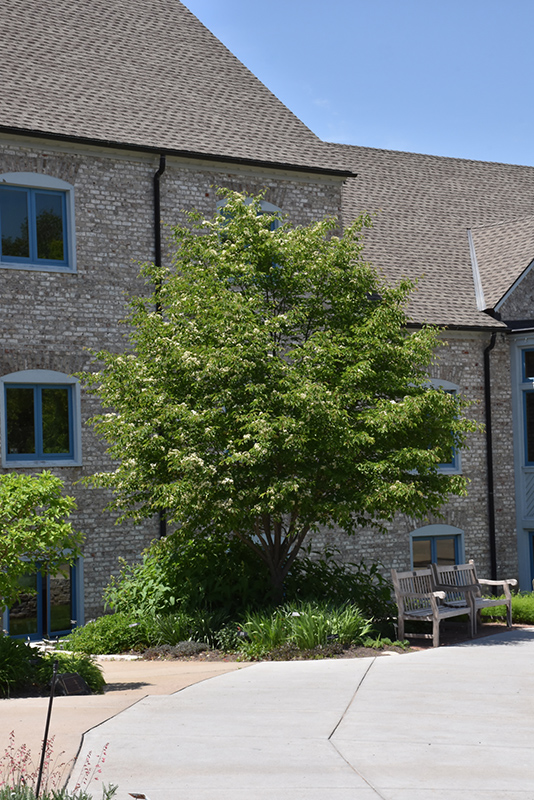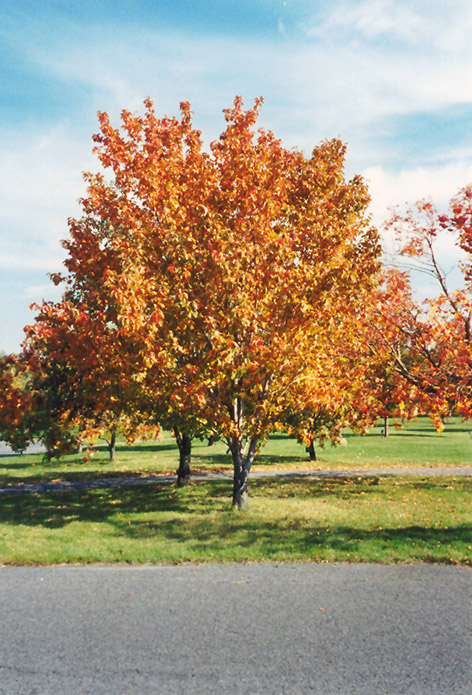Height: 40 feet
Spread: 30 feet
Sunlight:
![]()
Hardiness Zone: 4a
Description:
An excellent specimen tree for smaller properties, with showy clusters of white flowers in spring followed by red to orange berries, consistent habit of growth and single leaves, unlike other species; needs very well drained soil, resistant to fireblight
Ornamental Features
Korean Mountain Ash features showy clusters of white flowers held atop the branches in mid spring. The orange fruits are held in abundance in spectacular clusters from early to late fall. It has dark green deciduous foliage which emerges light green in spring. The oval leaves turn an outstanding gold in the fall. The smooth gray bark adds an interesting dimension to the landscape.
Landscape Attributes
Korean Mountain Ash is a deciduous tree with a distinctive and refined pyramidal form. Its average texture blends into the landscape, but can be balanced by one or two finer or coarser trees or shrubs for an effective composition.
This is a relatively low maintenance tree, and is best pruned in late winter once the threat of extreme cold has passed. It is a good choice for attracting birds to your yard. Gardeners should be aware of the following characteristic(s) that may warrant special consideration;
- Disease
Korean Mountain Ash is recommended for the following landscape applications;
- Accent
- Shade
Planting & Growing
Korean Mountain Ash will grow to be about 40 feet tall at maturity, with a spread of 30 feet. It has a low canopy with a typical clearance of 4 feet from the ground, and should not be planted underneath power lines. It grows at a medium rate, and under ideal conditions can be expected to live for 50 years or more.
This tree should only be grown in full sunlight. It is very adaptable to both dry and moist locations, and should do just fine under average home landscape conditions. It is not particular as to soil type or pH. It is somewhat tolerant of urban pollution. This species is not originally from North America.






